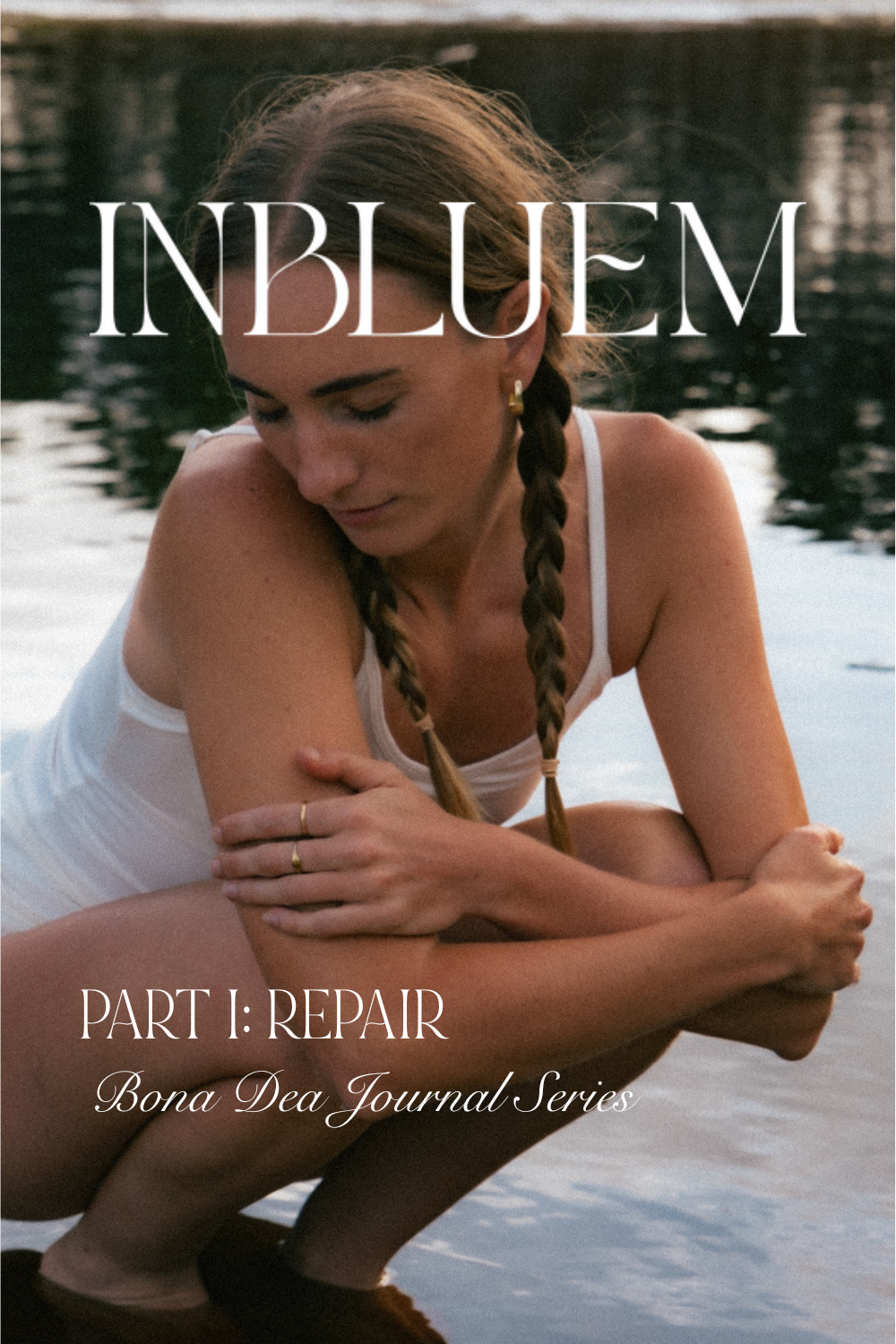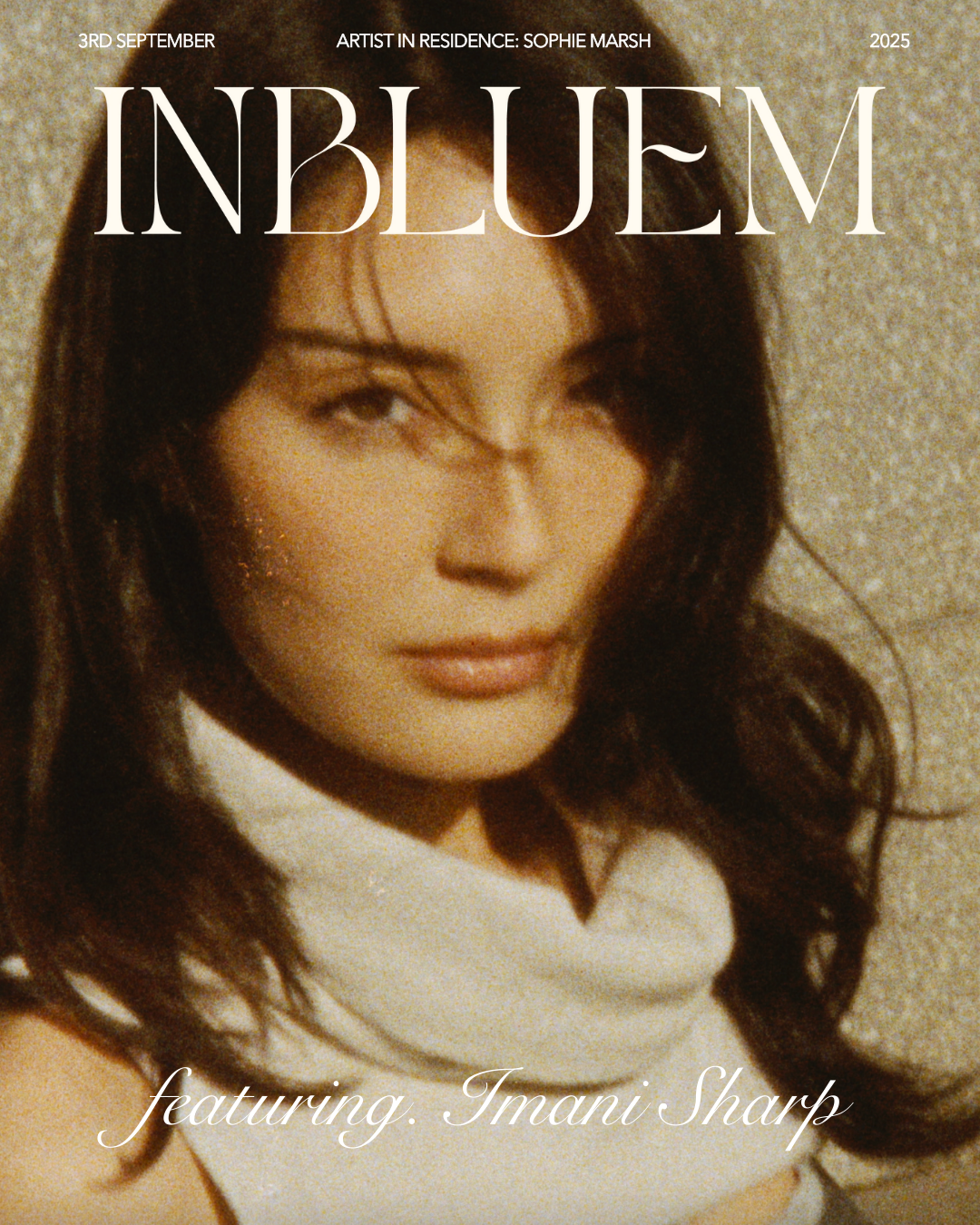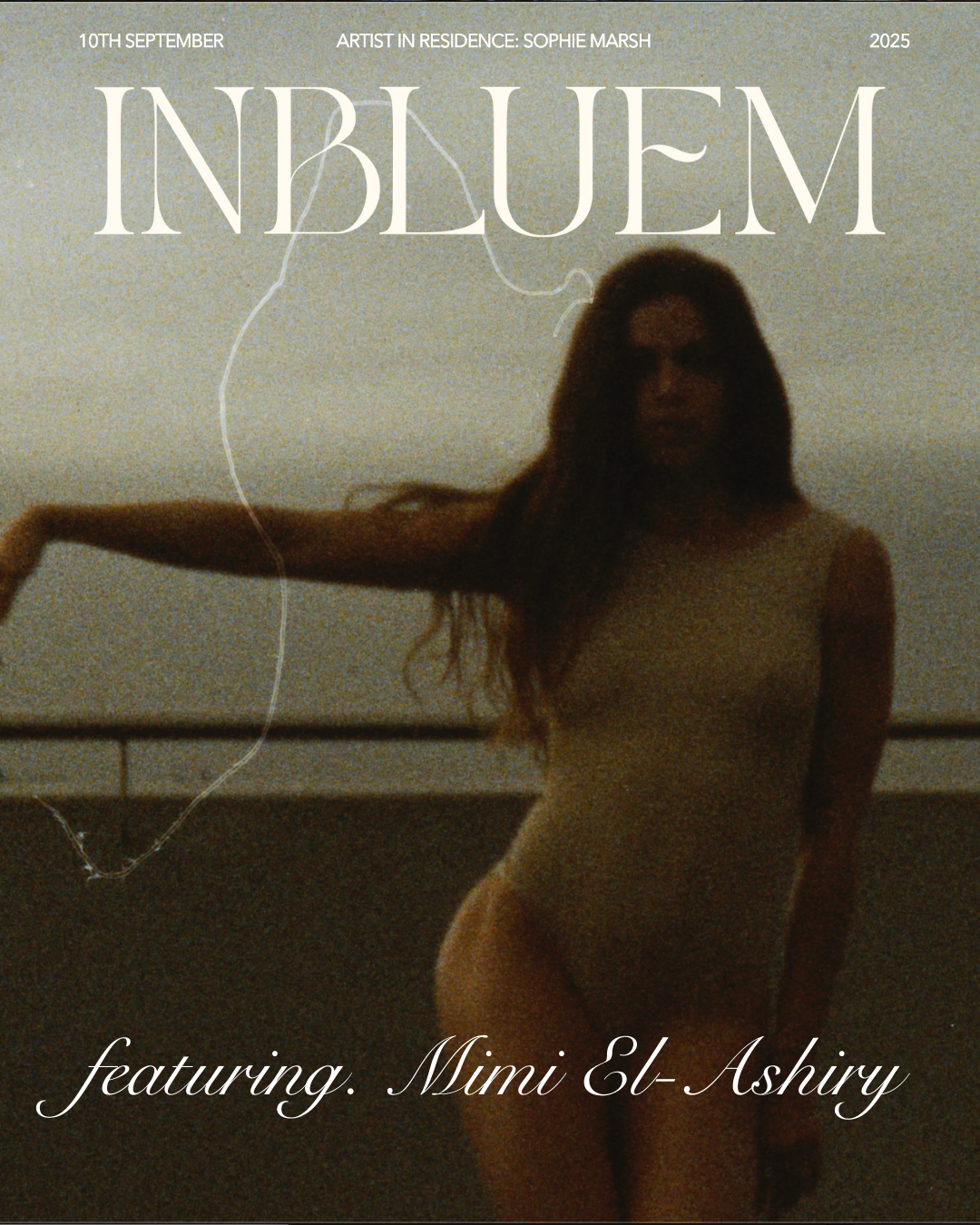A New Threshold: Sophie Marsh and Yasmin Suteja
This is the beginning of Thresholds,
a thesis at the centre of the Artist in Residence for InBluem over the coming months. The idea itself came at a time when I was in a very liminal space—between the certainty of what my life had been and a hollow void of realisation that my life no longer fit me.
Grief was the first stage of that, and was this luminous concept that appeared as a channel for alchemising that certain grief and that void’s existence into something quite beautiful and relieving, rather than fearful.
This conversation you are about to read comes from a walk that I took one recent morning with my housemate Yasmin Suteja. Yasmin and I have a unique relationship as creatives and friends who derive energy from one another equally. This is something we are proud of, and also why it makes her the perfect person to help me introduce Thresholds to you.

SOPHIE: How would you describe me as a creative to somebody that doesn't know me? What do you think is imperative grounding information for people to understand?
YASMIN: I would describe you as a very deep thinker, but also very intuitive and emotionally intelligent. One of the first things I noticed about you was your ability to synthesise information—to listen to me and my ponderings and vision, sit with it, and then repeat it back to me in a way that made sense. You bring disparate parts together and give them function and form, which is a really rare skill. You are able to see all the minutiae but also the big picture.
For me, the way that I approach our kitchen is a reflection of this—how there's just shit everywhere– because I put things down, then I pick them up again, which applies to ideas as well. What I've really loved about working with you is that creativity for both of us is so fluid and constant. It's every minute of the day. We're doing it right now, on our walk, in the lounge room, in the car. There's this constant pondering.
At the core of that is always a deep inquiry. That's probably a real pillar of the way you approach things. You don't just accept surface-level explanations—you ask even more questions about intention, about tone, about overarching ideas.
I can observe the thing, but you encourage me to step into it, which is quite scary. It's easy to look at something, but it's not easy to be in it or feel it. And even further, to have an opinion about it or try to change it.
On Writing as A Portal
SOPHIE: I feel so much humility welling up inside me. As a writer, my writing has always been a survival mechanism—renegotiating my relationship with reality. If I feel in a space of dissonance with my environment, I can use writing as this vessel to reposition myself or the world in relation to me.
My writing has always been about trying to achieve catharsis. I feel like my art is a byproduct of my writing because writing is the ability to move things from one form, one language, one plane to another—from the written to the visual, from the unspoken to the heard, from the invisible to the seen.
You need sensitivity to be able to locate that threshold of where something magic is going to happen. And then you also need sensitivity to invite all of the truths in. But then you need a strong backbone to keep that portal open whilst it's uncomfortable, whilst it's painful, whilst the experience is moving through you.
YASMIN: One of the thresholds I witness you working with is that threshold between strength and vulnerability. Some would argue that's actually the same thing, because vulnerability is the ultimate strength. You have to put so much on the line to be vulnerable and real.
The threshold in our dynamic is that I'm on the side of observation, and you're on the side of embodiment. Embodiment is stepping fully into the thing. Observation is acknowledging it but keeping a safe distance.
SOPHIE: Your skill of observation is being able to go so telescopic on something—to put such a lens between you and the thing that you can see it with mastery. That threshold is really interesting. Binary oppositions actually collapse upon each other at a certain point. Because they are in opposition to this thing, they inherently are that thing as well. It's a universal law.
On Connection
YASMIN: Like the shadow self. I think about all these things in binaries. I know that a shadow version of myself exists, but I like to think it exists separate from me, even though it's part of me.
Maybe another threshold is community and isolation. Our dynamic has been largely one-on-one, and I suppose the threshold there is the fear that society puts on any form of codependence or hyper-bonding. The idea, especially for women, is that we have to maintain autonomy. We have to be different from her, and the only way for me to continue existing next to her is to be binary opposites.
Any semblance of plugging in and co-existing in a spiritual, mental, emotional way is very scary, and people will tell you not to do that, out of fear.
On Rupture and Repair
SOPHIE: There is this sensibility that can become paranoia when you have evidence that things can go wrong—that at some point the other shoe's going to drop. I think in relationships, it manifests as a huge fear of intimacy. Because what happens when something goes wrong?
YASMIN: We talked about this last night—the threshold between friendship and romance. It's literally one millisecond away from being the other thing. That's what's so interesting about thresholds. You can literally be on one side one second, and then on the other side the next second.
SOPHIE: Rupture and repair is another threshold that comes into all of this. As I've gotten older, I can see where my fear of the rupture has actually taken away from my ability to repair or make decisions that don't inevitably steer me towards rupture as a self-fulfilling prophecy.
YASMIN: I take a relatively non-invasive approach to my skincare but I have been doing derma-pen for a long time, and my facialist described it as "controlled trauma." We're destroying the first layer of the skin to stimulate collagen repair. Your body will repair itself—that's what it's built to do.
That is to say that with rupture and repair, sometimes we go through these processes where there has to be some destruction to allow for regeneration. Sometimes there has to be some form of destruction of the ego in order to rebuild. We know that.
SOPHIE: But we don't want to (know that). Convenience culture makes it enticing to think we don't need to lose anything to gain something.
On Black Swan Events
SOPHIE: When I was in New York, I was experiencing probably the most intense rupture period of my life. It felt like my insides were splitting open. I had made this gigantic leap to a city far bigger than anything I'd ever experienced, on my own, coming out of a painful friendship breakup, running away from years of compounded trauma. I thought I had done a lot of self work, but there was something about that city that was like: I’m gonna press your face into the concrete and you’re going to feel the graze, and you’re going to recognise it as loving eventually.
I sat down at this café to work, having spiralling thoughts that made it hard to feel present, and there was this little street library. I walked over and there was this book called Antifragile by Nassim Nicholas Taleb. It introduced me to the concept of black swan events—instances in history where something catastrophic has happened to the collective, and as a result, a revival of community, human spirit, art, and love has emerged.
After the World Wars of the 1900s, there was the 70s and solidified recognition of love and peace and freedom. After 9/11, there was this huge coming together of New York as a community that had previously sought intense individualisation. When rupture comes, there's this incredible opportunity to repair and strengthen and weave new awareness into a framework that clearly needed to break.
But we don't have a lot of resilience to that process because so much is bypassed in convenience culture—this idea that you can shortcut your way to healing from trauma or shortcut your way to healthy relationships. A lot of the healing comes in the living and in the vulnerability we're so afraid of doing.
YASMIN: When there's a rupture, what's immediately left is a void, and then all this energy rushes into that void, trying to claim this new space. When you destroy existing structures, the terrifying thing is that your imagination has to be so expansive that you can allow a whole new framework to come in. That's where a lot of our societal fear comes from. If you take these structures away, what's left? Anarchy, disorder, disarray, the void.
On Chaos and Order
SOPHIE: The digital world gives us this illusion of control and order. We like the idea that we've ordered the world around us in a particular way, that makes us individual and special and unique. But everything we have is borrowed from somebody else's reality. We share things with people around us all the time, whether we mean to or not. We accidentally leak our insecurities, fears, dreams, hopes, projections onto other people constantly.
YASMIN: We're all suffering from leaky gut. Even doctors will say that leaky gut doesn't exist; naturopaths will say otherwise. There's another threshold—doctor versus naturopath.
On Childlike Play and Potential Energy
YASMIN: Imagination, freedom, and childlike play is another big component of your creative process and mine. I'm so grateful to have met that energy in someone else because it's so important. Not many adults have the luxury— and it is a luxury—to exist in childlike play. Many haven't been able to tap into that.
There's a point in all our lives where we're told, "You're an adult now, start thinking rationally, stop playing, have structure." You can't just bake a cake on a random Monday. I think we're lucky to be in a liminal space in our lives right now, where our apartment has been this portal. There's a bridge being built, but we don't know where it's going.
SOPHIE: I feel it when you talk like that. I feel it in my chest—it's not something I can conceive of in a linear or static image. I just have this feeling that there's almost a bungee cord attached to my chest. Very soon there will be something quite amazing happening. I don't know what it is. It's building and building, and every time we do something together, it's like the velocity on the end of this bungee cord increases.
YASMIN: I’m really interested in potential energy as a concept. When you have an elastic band and you pull it all the way back, you create potential energy. It's not kinetic yet, but you can feel there's energy in it. It's only when you let go that it catapults.
SOPHIE: That's the perfect metaphor for thresholds. The threshold isn't the two ends that the band has been extended to—it's the space in the middle. It's the potential energy. It's all the distance between these two points we've conceived.
I like to think we can expand those sides of the band so far that they end up touching each other—like Ouroborous, the snake eating itself. Everything is also its opposite in some way. I'm much more interested in the space between two extremes and all the ways that can be relieving and challenging and expansive and, at times, beautifully painful. I don’t want to glorify discomfort, but we do grow weaker when we avoid it.







Leave a comment
This site is protected by hCaptcha and the hCaptcha Privacy Policy and Terms of Service apply.